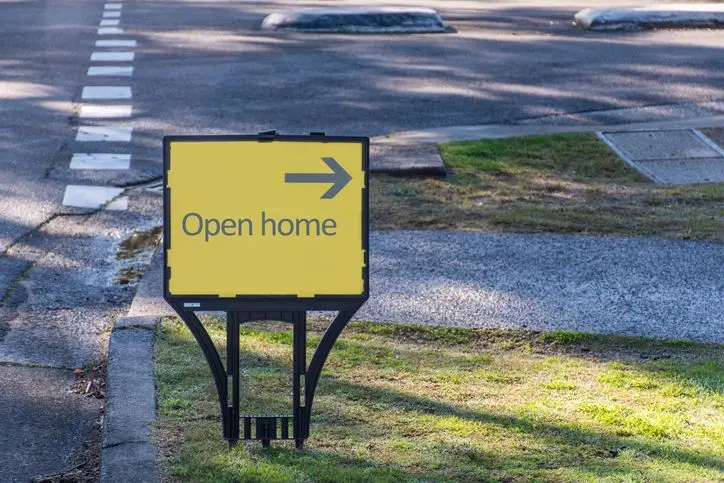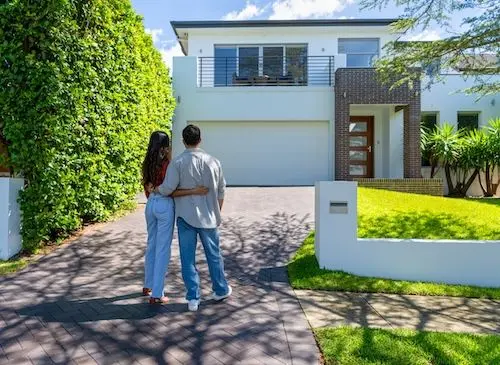
How to choose the right agent to sell your home
Finding the right agent for you can make all the difference when selling.

Selling property in WA means navigating state-specific rules, legal paperwork, and local market expectations. Whether you're selling an investment, moving suburbs, or finalising a life change, a strong plan can help you avoid stress and achieve a great result. From Perth’s city fringe to WA’s regional centres, understanding the process is key to maximising your property’s value.
WA agent commissions generally range between 1.7% and 3.7% of the sale price, but this depends on your suburb, agent and sale type. Use our Commissions Calculator to check what agents are charging in your area.
You should also budget for marketing, conveyancer fees, photography, and optional extras like home staging. Try our Selling Costs Calculator to estimate your out-of-pocket costs before you list.
Read the full guide on how to find the right agent to sell your home.

Please select your suburb from the drop down
Use our handy selling calculator to crunch the numbers and get an estimate.
Properties in WA are usually sold by private treaty. Compared to other states in Australia where about 20% of properties are sold by auction, only about 2% of properties in WA are sold by auction. However, auctions are becoming more common in some Perth suburbs.
Speak to a local agent about which method suits your area and goals.
Clean, declutter, and complete basic repairs to present your property at its best. Sellers often invest in high-quality photography, and in some cases, property styling. A well-presented home stands out online and draws more potential buyers.
Read the full guide on how to prepare your property for sale.
Pricing your home correctly is one of the most important parts of a successful sale. A well-priced property can attract more interest and competition, while overpricing may turn buyers away early on. To get an idea of how much your property is worth, you can get a property report with recent sales in your suburb and an online property value estimate.
In a private treaty sale, this means setting an asking price that reflects recent comparable sales, your property’s features, and current local demand. If you’re selling by auction (less common in WA but gaining traction), you’ll also need to decide on a reserve price with your agent.
Your agent will help you design a marketing plan based on the type of buyer you want to attract. Most sellers invest in:
The main documents you need to sell a property in WA are a Contract for Sale of Land and Joint Form of General Conditions for the Sale of Land. If you’re selling a strata titled property, you’ll need a Strata Title by Offer and Acceptance, according to Consumer Protection WA. These are prepared by a conveyancer or legal practitioner.
Unlike other states, there’s no mandatory cooling-off period where buyers can change their minds unless it’s agreed upon by both parties.
The general guide for settlement in WA is 28 days. However, this can be negotiated between you and the buyer.
Read more on settlement and how to negotiate a settlement date.

Finding the right agent for you can make all the difference when selling.

From obvious expenses to hidden costs, get the full rundown of what's involved.

See expert predictions, and current pros and cons to help you decide.

Please select your suburb from the drop down
Remove the guesswork. Use OpenAgent to help you find, compare and shortlist the top agents in your suburb.
Planning to sell property in WA? Use our calculators to estimate your selling costs and agent fees, so you can plan ahead with confidence.

Calculate the costs involved in selling your property and budget effectively.

Pay the right commission for your suburb and maximise your sale price.

Our 7-day email course will guide you through every step of the selling journey.
You’re legally allowed to sell tenanted property in WA, but there are specific notice periods and requirements depending on whether the lease is periodic or fixed-term. If you’re unsure about your obligations, visit Consumer Protection WA.
The buyer can take on the landlord responsibilities. However, if the property needs to be vacated when sold, these are the guidelines:
Tenants are entitled to proper notice before inspections (minimum 7 to 14 days recommended), and landlords should be mindful of privacy and frequency of access.
Capital gains tax (CGT) applies when you sell an investment property for more than you paid. For example, if you bought at $400,000 and sold at $500,000, you may be taxed on the $100,000 gain. This is added to your income and taxed at your marginal rate.
If you’ve owned the property for more than 12 months, you’ll usually qualify for a 50% CGT discount. There may also be exemptions if the property was your main residence or inherited.
Always consult an accountant or check ATO guidance on CGT and investment property. Read more on tax for selling investment property.
When handling a deceased estate sale in Western Australia, the first step is to legally appoint someone to act on behalf of the estate. Typically, the executor (named in the will) or an administrator (if there’s no will) must apply to the Supreme Court of Western Australia for a Grant of Probate or Letters of Administration, according to the Government of WA.
Once the grant is in place, the executor can proceed with marketing and selling the property similarly to a regular sale. For legal compliance and tax considerations (such as CGT), it’s advisable to consult both a solicitor and an accountant.
Yes, selling property without a real estate agent (also known as For Sale By Owner) is legal in WA. You’ll save on commission but take on all the responsibility—pricing, marketing, legal paperwork, and negotiations. While some owners go this route, most choose an experienced agent to help them achieve the best result.
First, you’ll want to understand the costs involved, including agent commissions, marketing, conveyancing, and any prep work like repairs or staging. Next, have your legal documents prepared by a licensed settlement agent or solicitor. Choosing a trusted real estate agent is crucial, as they’ll guide you through whether auction or private treaty suits your home best.
Once your property is ready to list, your agent will help market it through photos, online listings, signage and inspections. When an offer is accepted or the property sells at auction, you’ll move on to contracts and the settlement process.
Timeframes vary depending on your suburb, the property, and buyer demand. For example, the median days on market (DOM) in Perth is around 41 days, though this can fluctuate seasonally. You can get a free property report to see what the average DOM in your suburb is or talk to local agents to understand the average time to sell in your area.
There are no state-specific seller taxes in WA, but you may need to pay capital gains tax (CGT) if the property is an investment. Buyers in WA are responsible for paying stamp duty. We recommend speaking to a tax adviser to ensure you meet all your financial obligations.
In Western Australia, most homes are sold by private treaty, giving sellers more flexibility over pricing and contract conditions.
While auctions are far more common in the eastern states, only around 2% of WA properties are sold this way. That said, auctions are slowly gaining traction in high-demand suburbs where competition can help drive prices up.
It’s worth speaking with a local real estate agent to get tailored advice.
There is no standard cooling-off period for property sales in Western Australia. Once both parties sign the contract of sale, it becomes legally binding. If a buyer wants to include a cooling-off period, it must be negotiated and written into the contract before signing.